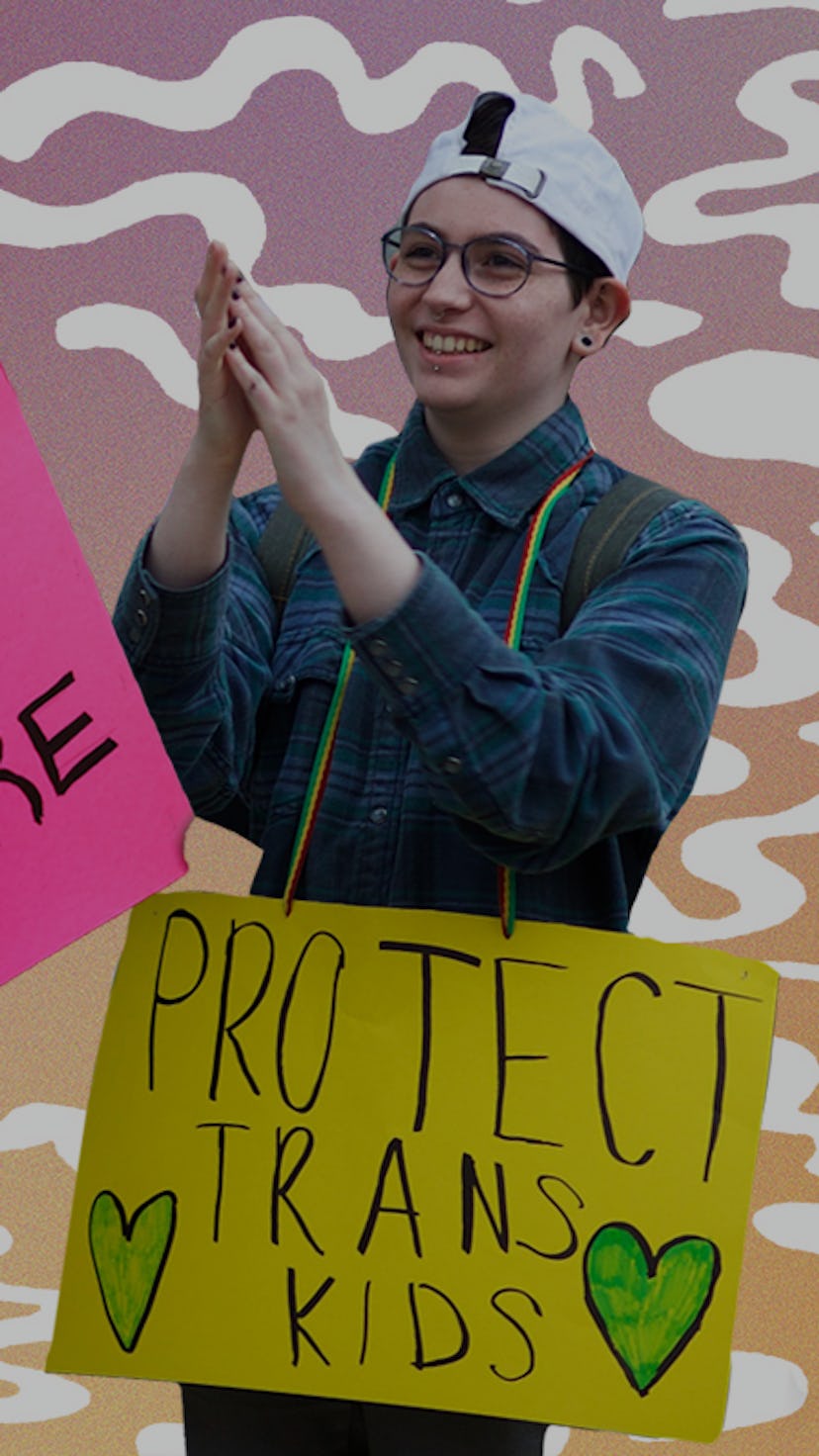The latest transphobic laws are a natural evolution from abortion bans
Conservatives have a warped view of both gender-affirming treatment and abortion care as a threat to reproduction.

Last week, Idaho state Rep. Julianne Young (R) called her state legislature’s proposed bill to ban gender-affirming care for trans minors an “extension” of her “pro-life” beliefs, expressing concern over trans teenagers’ capacity to someday bear children.
“I see this conversation as an extension of the pro-life argument,” Young said. “We are not talking about the life of the child, but we are talking about the potential to give life to another generation.” Her statement reveals an important piece of the frightening new world that religious conservatives are trying to build — a world in which no one has agency over their own bodies because the state regulates sex and procreation.
For years now, much of the moral panic about treating adolescent gender dysphoria has been wrapped up in a fertility scare. Alongside attempts to ban gender-affirming care for trans adolescents have come ever more extreme attacks on abortion access. Texas, which was just in the news when Republican Gov. Greg Abbott unilaterally declared gender-affirming care to be child abuse, passed a six week abortion ban in 2021. Another case determining the fate of Roe v. Wade — and with it, abortion access across the country — has already been heard at the Supreme Court, with a decision expected any day.
Idaho, not to be outdone, introduced its own Texas-style abortion ban in February. It passed this week. It’s another reminder that trans rights, and by extension LGBTQ+ rights at large, are intimately tied to abortion rights.
Anti-choice politicians always value potential life over actual life.
When Roe v. Wade was decided in 1973, instead of guaranteeing an unlimited right to abortion access, the court created a viability standard, declaring that the state has a compelling interest in protecting fetal life as long as the fetus could survive on its own. The viability standard has been increasingly stretched over the years by continuous conservative legislative attacks, resulting in Texas’s six-week ban.
Meanwhile, as Young’s statement makes clear, a large portion of conservative attacks on gender-affirming care for young people stems from a similar place and extends the power of the government even further into our private lives.
Anti-choice politicians always value potential life over actual life. The bans on care for trans adolescents are no different. And in this specific case, the rights of people that were assigned male at birth and those assigned female at birth are harmed in equal proportion.
Though there have been cases when adult trans people have gone off of their Hormone Replacement Therapy (HRT) and managed to have their own children, much is yet still unstudied when it comes to earlier transitioners, like minors who go on puberty blockers shortly after puberty begins. This uncertainty has created ripe opportunities for anti-trans campaigners to try to scare parents and public onlookers. Former Wall Street Journal reporter Abigail Schrier left journalism in order to become a full-time campaigner against trans rights. In 2020, she published a book titled Irreversible Damage: The Transgender Craze Seducing Our Daughters.
The cover for Schrier’s book was highly provocative, featuring an illustration of a doll-like little girl with a literal hole where her uterus would be. That design choice was clearly carefully designed to scare parents who may have one day dreamed of having grandchildren — and Schrier’s prescription for gender dysphoria, which essentially amounts to harsh conversion therapy, is meant to be the pathway for parents to keep those dreams alive.
To be clear: Gender-affirming care is the only appropriate treatment for gender dysphoria, according to every major medical authority in the United States. The campaign against it for minors increasingly resembles similar attacks against abortion access and other reproductive health care options in that it seeks to push the government in between patients and their doctors while making the most personal of life decisions. And that is the real danger to the marginalized people affected.
Instead of uniting to fight back against both abortion bans and bans on gender-affirming care, most liberals and progressives still fall back into separating the issues into different political silos. They argue that while abortion bans are really attacks on women’s autonomy, puberty blocker bans are something new and different. Worse, TERFs explicitly argue that to properly protect the right to reproductive health care, we must deny the existence of transgender children altogether, in the name of “protecting women.”
But at their core, both abortion rights and trans rights are about individual citizens having a fundamental right to privacy from a leering and overbearing government.
If the Supreme Court decides that the government has the power to regulate procreation, it opens a whole can of worms for many different marginalized communities. State governments could use similar justifications to ban not just gender-affirming care for minors, but for trans adults as well. Lawrence v. Texas, a 2003 Supreme Court ruling that stated that bans on gay sex were a violation of the constitution, could be rolled back.
In other words: The government could invade your most private of decisions in order to ensure that more babies are produced for state and industry. It’d be a dark and terrifying world to live in — and one we seem to be careening toward.